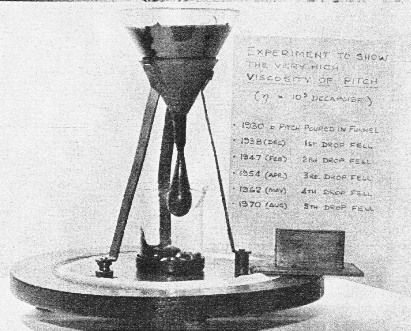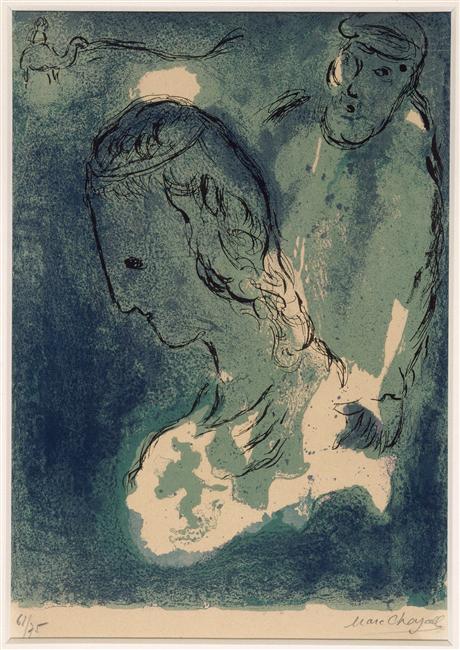The God Who Hides
When Average Dude tells you that something can be proven “true,” he’s usually making a pretty simple statement. He's saying that either
(1.) his physical senses can validate a proposition (i.e. “I know that stove is hot! I touched it!”)
(2.) that logic can support his conclusion (i.e. “There is no largest whole number.”)
When Philosophy Jane claims that something is true, she often has a formal theory of truth in mind. Maybe she's a proponent of The Coherence Theory of Truth, The Correspondence Theory of Truth, or the Pragmatic Theory of Truth--you can read more about these on The Stanford Encyclopedia of Philosophy.
But whether we are Average Dude or Philosophy Jane, most of us have some sort of truth theory which (intuitively or intentionally) moves us through daily life. And while it's normal and human for Christians to adopt these tools day-in-day-out, I think it's sad when we transfer the whole of our trust to them while attempting to regain cultural power.
Quite a few training seminars promise to protect faith in Christ from godless, liberal progressives by hours of rational, logical, and philosophical arguments. These videos promise to clear away the fog and leave an undeniable gospel which can permeate the most stubborn secularism. Yet we seem to have forgotten that the Bible tells us truth cannot be obtained by such means alone.
WHAT DOES THE BIBLE SAY ABOUT TRUTH?
As someone who teaches Western philosophy, I spend several months every year walking through human attempts to nail down truth. I lead my students through the best attempts of Plato, Aristotle, Descartes, Hume, Hegel, the Marxists, the existentialists—and in doing so, I show them how the most learned individuals of civilization have spun their wheels in mud, looking for some way to prove reality.
At the end of this futility, it’s always so refreshing (and a bit funny somehow) to come back to what the Lord has said about the process of validation.
1. First off, God told us that reality isn’t limited to the physical.
He told us that reality is dual, comprised of a seen realm as well as an unseen realm. Theoretical physicists toy with this concept as they play with string theory and computer simulation theories; sci-fi writers and horror writers build plots around the metaphysical world; but thousands of years ago, God taught us that any material theory of the universe would be insufficient.
Hebrews 11:3 explains that the “word of God” was so powerful that it was able to form “what is seen” out of things that are invisible. And II Kings 6:17 (one of my favorite verses in the whole Bible) shows us what happens when God peels away the visible world to let Elisha’s servant see the truer reality of hills full of horses and chariots of fire.
Even if I weren't a Christian, I would find it audacious to believe that the sum total of reality might be limited to mortal perception and cognitive processes. It's pompous and silly to assume that a little animal ball of cells, bones, and blood might have the gift of ultimate perception. When God shows us that reality transcends human perception of reality, he indicates what I think even a rudimentary imagination should assume about the universe.
2. Secondly, God tells us that truth can’t be obtained simply by human effort.
God has put up strong barricades between ultimate truth and human ability to find it. Is this suggestion maddening for the secularist? Of course. "How dare he! It's not ethical!" he shouts.
Yet, no matter how hard the mind searches, God will hide certain realities from hearts that are stubborn, proud, and defiant. The door of truth is locked against certain types of searches. It will not open until the posture of the seeker changes.
A post-Enlightenment culture that trusts deeply in the power of the mortal mind cannot stomach such news. Isn't a holy Divinity obliged to create reality accessible through the force of human strength? Of course not. A holy Divinity would have the ability to perceive deeply enough to judge justly--the ability to permeate the deep recesses of a soul's posture and call a spade a spade.
This God sees us thoroughly, and this means no accusation against his judgment will stand. Because he is the fullness of Truth, he will be able to dissect every attempt at defense with surgical precision.
If we have spent our lives claiming to disbelieve because of a lack of historical or logical evidence while deep down, we have disbelieved because we are stubborn and indulgent, He will know. All shields will go down. All smokescreens will disappear. We will be bare with all of our truest motives before a God who sees everything.
This is why “The fear of the Lord is the beginning of wisdom...” Proverbs 9:10 a. Instead of a Cartesian starting point like “cogito ergo sum,” the foundation of all wisdom reduces to a posture of reverence. How we stand determines what we can know.
If we are defiant and haughty, we will not know ultimate truth no matter how smart we are. Inside of this dual reality, God has intentionally hidden himself from the proud. His “judgments are unsearchable, and his ways are untraceable.”
3. Thirdly, God tells us directly that he didn’t create a pathway to Truth through logic (rationalism) or sensory validation (empiricism) but through a living Being.
When Jesus said, “I am the way, and the truth, and the life. No one comes to the Father except through me,” he wasn’t just offering a religious dictum. He was consolidating every epistemological claim that the Bible makes, Genesis to Revelation.
Jesus isn’t just a proposition to be proven by coherence, correspondence, or pragmatism. He is the burning core of Truth—which means that all lesser truths (including all methods to finding truth) derive from him.
IMPLICATIONS
I understand why Christians are nervous about losing cultural power, and as I watch us grasping for a means to regain influence, I feel a measure of empathy. However, even when fear bangs around in our hearts, we must stay grounded in what God has told us about how truth works instead of rushing desperately to bow before the epistemological idols of our time.
We’ve been given radical access to the Living Truth—a truth Jesus told us was intentionally hidden from the wise and understanding but revealed to those who stand in the posture of children. If God locks truth against the proud, our most fevered intellectual arguments can accomplish nothing. We can strain and argue to our last breath, but the work of heaven cannot be accomplished by the flesh of man.
We can be ready to give an account to the curious. We can answer questions about historicity and systematic theology. We can offer an apologetic that resonates with rationalism and empiricism. But ultimately, God’s work in our culture is dependent upon the Holy Spirit who searches the souls of men.
As we all jumped into the Yanny/Laurel debate this past week, we saw how two truths can sit superimposed upon one another. What we perceive depends on the frequency to which our ears are tuned.
There’s a spiritual correlation here. Two different souls walking in two different postures can hear the same gospel. One can hear foolishness. The other can recognize Truth. This is the universe God has given us.
We mustn’t attempt to flatten this duality because God has allowed it for a reason. God is an intentional creator, and there’s a divine purpose in a gospel that is “foolishness to those who are perishing, but to us who are being saved"... "the power of God.”
Straining against this dynamic is straining against the sovereignty of God. Whatever his will is for the church, it exists within this very tension.






















